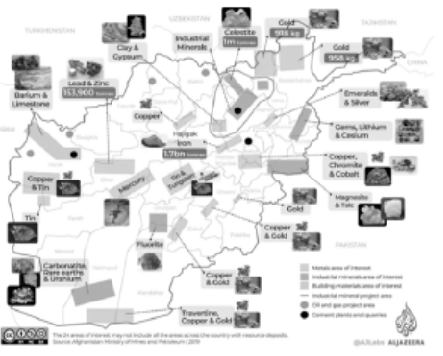


Journal of Contemporary Politics
Year: 2025, Volume: 4, Issue: 2, Pages: 62-72
Original Article
Lakshmi Karlekar1,∗, Aanchal Prasad2, H M Greeshma3
1Research Scholar, Department of International Studies, Political Science and History, CHRIST (Deemed to be) University, Bengaluru, Karnataka, India
2Undergraduate Student, Department of Law and Business Administration, CHRIST (Deemed to be) University, Bengaluru, Karnataka, India
3Undergraduate Student, Department of History, Political Science and Economics, CHRIST (Deemed to be) University, Bengaluru, Karnataka, India
*Corresponding Author
Email: [email protected]
Received Date:06 May 2025, Accepted Date:24 June 2025, Published Date:24 July 2025
Afghanistan is strategically located at the intersection of South Asia, Central Asia has huge untapped lithium reserves, a key resource in the world's transition to electric vehicles (EVs) and renewable energy. China's increasing interest in Afghanistan is notably gaining access to lithium to preserve its leadership in the EV battery supply chain. This article analyzes China's strategic interests in the region, emphasizing the change in regional power structures after the U.S. withdrawal in 2021. Despite the economic prospects, the paper highlights the difficulties China is encountering in Afghanistan. The analysis is further extended to the effect of China's lithium aspirations on India-Afghanistan relations, shaping regional geopolitics. The research assesses it as an economic lifeline or whether it is likely to turn into another instance of the "resource curse.
Keywords: Afghanistan, China, Electric Vehicles, Geopolitics, Lithium, Security Challenges
© 2025 Published by Bangalore University. This is an open-access article under the CC BY license (https://creativecommons.org/licenses/by/4.0/)
Subscribe now for latest articles and news.